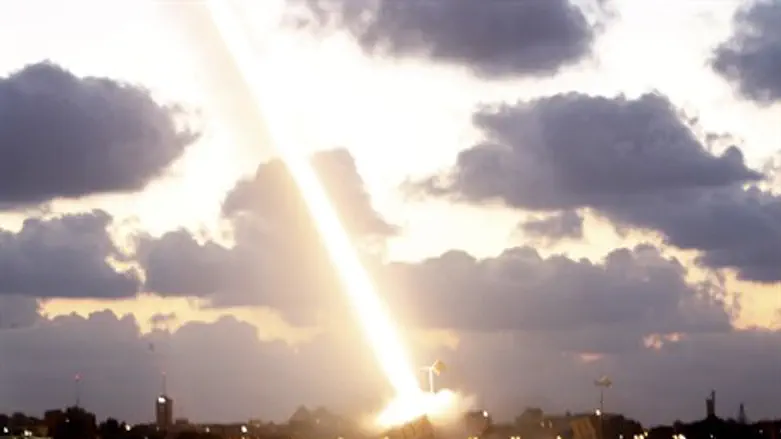
Israel had been struggling to sell the Iron Dome anti-missile defense system abroad, but the Israel Defense website revealed on Sunday that a major purchaser has been found: the United States.
Apparently the US Army will acquire one Iron Dome battery, and based on tests it will conduct on the system decide whether or not to purchase more units of the Israeli defense system that reportedly boasted a 90% hit rate in Operation Protective Edge.
Israel Defense notes that at the beginning of Iron Dome's development the US Army didn't have much confidence in the system, which is why it was funded with a special budget and not the ordinary annual US defense budget that is allocated for other anti-missile systems such as the Arrow.
Having seen the system proven in war, the US now apparently is considering deploying it to defend military establishments and US soldiers around the world, as its short-range missile defense capability is not in great demand in America.
Recently cooperation was agreed upon between the Israeli defense company Rafael which developed Iron Dome and the American company Raytheon, by which they will develop Iron Dome together on American soil.
By doing so, Iron Dome may be included in the "normal" defense budget for Israel, which requires roughly 75% of Israel's defense spending to be of American-made military hardware. It also will allow Israel and the US to offer the system for sale to several other countries, such as Poland, Ukraine and South Korea.
India has also reportedly been interested in buying the Israeli-made system, with defense ties between the two countries soaring of late, and with India increasingly buying from Israel rather than the US.
Just last week Defense Minister Moshe Ya'alon (Likud) decided to drop Israel's planned purchase of the US V-22 Osprey aircraft. The decision reportedly stemmed from lessons learned in Operation Protective Edge and the recent conclusion of an agreement to buy a second batch of costly Lockheed Martin F-35stealth fighters.
Another reason for the move was raised by Israel Defense, which noted that the purchase of six V-22 aircraft did not justify establishing a new logistical wing in the IAF to utilize the advanced planes.